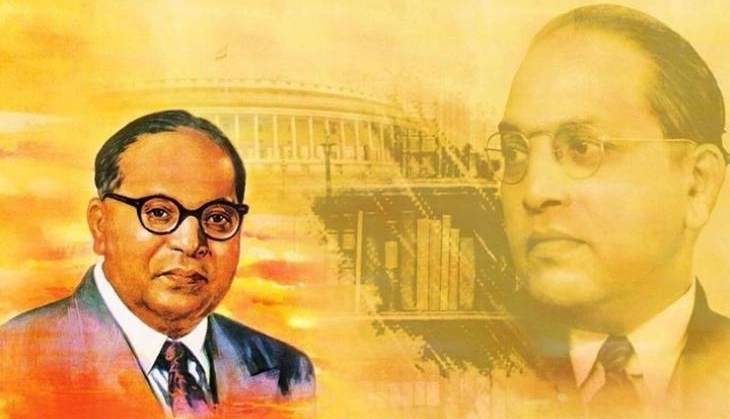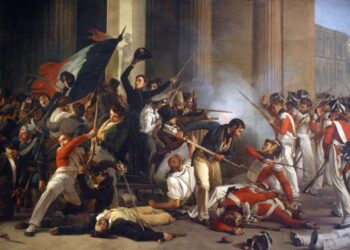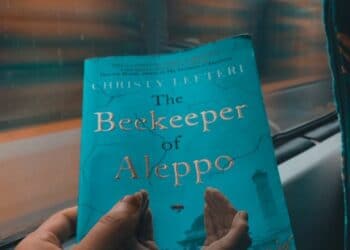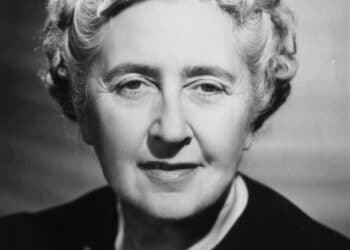Ambedkar came from a poor family belonging to the Untouchables, the lowest strata of Hindu Society. At that time, Being an Untouchable meant, one can not pet certain domestic animals, was forbidden to use certain metals or ornaments, obliged to don a particular type of dress and footwear, eat a particular type of food and was forced to occupy dirty and unhygienic, separate from upper-caste Hindus, places for habitation.
Untouchables were divided into many clans. Ambedkar’s family belonged to the Mahar clan of Untouchables who were believed to be strong, intelligent and of good socioeconomic background among Shudras (untouchable community).
Ambedkar studied at the Elphinstone High School which was later one of the leading schools in Bombay. Being a government institution, it was not untouched by casteism. There were prejudice and hatred against the Untouchables. One day, Ambedkar’s teacher asks him to come to the blackboard and solve a problem. Ambedkar spontaneously rushed toward the blackboard and there was an uproar in the class. The caste Hindus raised questions about Ambedkar’s going to the blackboard, because behind it, they used to keep their tiffin boxes and it could be polluted by the mere presence of Ambedkar, an untouchable. Eventually, the caste Hindu student removed all the boxes from there. This was a miniature demonstration of a vast humiliating, anti-Shudras world outside awaiting him.
This might be the first time when Ambedkar thought of his differentiation/alienation from Hinduism.
In 1907, leaving all atrocities and insults on the edge of his determination, Ambedkar passed the Matriculation Examination from Elphinstone High School with 282 marks out of 750. This was no common achievement for a community who were forbidden to study at the time. The Mahar community celebrated Ambedkar’s hard work and dedication.
At the celebration, there was one special guest, Krishnarao Arjun Keluskar, a well-known Marathi author and social reformist who encouraged Ambedkar for further study. It was Keluskar who introduced him to Gautam Buddha by presenting him with his new book, ‘Life of Gautama Buddha’.
Soon after completing Inter arts Examination, his father, Ramji Maloji, also known as Subedar, ran out of funds for his higher studies. Here, Krishnarao Keluskar comes to secure his education. Keluskar ran to Sayajirao Gayakwad, the Maharaja of Baroda, who recently had promised to help any needy untouchable and introduced Ambedkar to his highness. Maharaja asked Ambedkar some questions and satisfied with his answers, Maharaja allowed him a scholarship of 25 rupees per month.
After his father’s death, another chance came to Ambedkar’s life when the Maharaja of Baroda wished to send some students of the state to the USA to study. Luckily, Ambedkar got the chance.
Ambedkar went to Cambridge University and studied Moral Philosophy, Political Science, Anthropology, Economics and Sociology as his subjects. He completed his Masters in 1915 and headed to the London School of Economics and Political Science for Law and Economics. But soon after reaching London, Ambedkar was informed by the Dewan of Baroda that his scholarship is over and he has to come back to India. He returned in 1917.
Ambedkar was aware of the Indian politics of the Untouchables which he believed that it is sponsored by the Indian National Congress and considered it unsound and waited for the right time to get into the politics. Meanwhile, he continued to work to set his footing and continue his incomplete education in London; he became a tutor and simultaneously he started a business firm offering advice to dealers in the stock and exchange. Soon after its success, it became known to all the dealers that the proprietor of the firm is an Untouchable and he had to shut the business down.
His struggle started in 1926 when Bhim Rao Ambedkar was nominated to the Bombay Legislative Assembly by the governor of Bombay. Later on, a resolution was passed by the assembly which promised the Untouchables ‘Right to equality’. In the pursuance of the resolution, the Mahad Municipality opened the Chowder Tank to Untouchables. But this was only on paper, as the Chowder Tank was reserved only for Upper-caste Hindus and Untouchables were prohibited to fetch water from it.
It was therefore decided by the Kolaba District Depressed Class to hold a conference at Mahad on March 19 and 20, 1927. More than 10000 people were gathered for and near the conference. Ambedkar was invited there and the conference was concluded with the agreement by all, that we all should go to Chowder Tank and take water. The March towards the Chowder tank gave due recognition to Ambedkar as he drank water from the tank.
Soon after the March gets over, and people dispersed to their shelters, some bigots spread the rumour that the Untouchables are entering Veershwer Temple. Rumours started doing rounds, they said that now the Untouchables will pollute our temples and God.
As soon as people could leave for their homes, a large crowd of orthodox Mahad barged into the pandal, where people from far and near were stationed and pounded their utensils, their food was knocked down in the dust, 20 were injured. The local Police Inspector who failed to check the goons saw Ambedkar into this matter lately. Ambedkar rushed towards the pandal and was mobbed by the rowdies. He calmly tried to soothe them by saying that“we are not going to temple and we had no plan about it”. He went ahead and saw things himself and came back to his Bungalow where he was staying. By that time, the 100 people from Untouchables impatiently waiting for his orders. Ambedkar appealed to everyone for peace and discipline.
It was an event that changes Ambedkar’s life and Indian politics toward Untouchables. This event has separated the Untouchables from other caste Hindus at least in Ambedkar’s mind.
This might be the reason Ambedkar started demanding separate electorates for Untouchables. Separate from caste Hindus. He was of the opinion that Untouchable should have their representation by separate electorates. A separate electorate means an electorate composed of exclusively Untouchables’ voters who are to elect an Untouchable representative. He was of the view that “to suppose that the representative elected to the legislature will represent the wishes of the voters who elect him and forget or subordinate the interests of the class to which he belongs. The case of the representative is a case of divided loyalties. He is confronted with two rather with three-conflicting duties (1) a duty to himself, (2) a duty to the class to which he belongs, and (3) a duty to the voters who have elected him”.
He also paid heed on the reservation in Public Service for Untouchables. But the Hindus at the time opposed the idea too saying, “State require that capacity, efficiency and character should be the only consideration and that caste and creed should have no place in making an appointment to public offices.” Ambedkar in his paper, ‘Emancipation of the Untouchables’ countered their argument by saying that “The question is whether the competitive system simply because it is open to all castes and creeds will enable the Untouchables to get a footing in the Public Service. That depends upon the educational system of the State. Is it sufficiently democratic? Are the facilities for education sufficiently widespread and sufficiently used to permit persons from all classes to come forth to compete? Otherwise, even with the system of open competition, large classes are sure to be left out in the cold. This basic condition is conspicuous by its absence in India. Higher education in India is the monopoly of Hindus and particularly of high Caste Hindus.”
He also wrote that the Untouchables must have separate settlements. The object of this demand to make the Untouchables free from the thralldom of Hindus. So long the current arrangement of society continues, it would be impossible to eradicate ‘Untouchability’ from Hindustan.
These were his concern about the most suppressed people in the history of mankind. Ambedkar wrote that the condition of the Untouchables was ‘worse than the condition of Jews in Hitler’s regime.
He wanted to give all possible legal and constitutional protection to the Untouchables of the country. This is the reason even after 64 years of his death, the Untouchables, now Schedule Caste according to Indian Constitution revere him as God. This is the reason that 8.6% of the Indian population, on paper protected from inequality and untouchability.
(This article is based on the paper written by Dr BR Ambedkar, Emancipation of the Untouchables and Ambedkar’s biography by ‘Dr. Ambedkar: Life and Mission’ by Dhananjaya Keer)
















